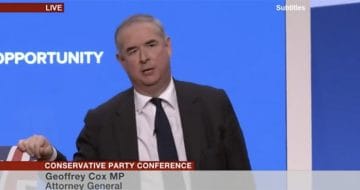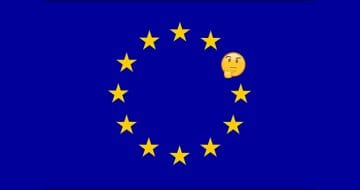‘Legal professional privilege’ gets rare airtime in Commons

It’s a lawyer’s nightmare: you pen a piece of legal advice intended for your client, written in a rush as you’ve got a million emails to attend to, and then someone a few weeks later demands that the legal advice be published for everyone to pick over.
But that is just what is going to happen to legal advice provided by the government’s chief legal adviser, the Attorney General, concerning the legal ramifications of the Brexit deal.
Sir Kier Starmer, shadow Brexit secretary, was successful yesterday in a motion calling for publication of the advice that includes advice on what is known as “the backstop” (the stopgap solution to the key Brexit issue of what will happen to the border between Northern Ireland and the rest of Ireland).
One hopes the Attorney General took his time over it — and double checked his punctuation.
The advice, penned in October of this year, will, presumably, however, be top notch since it was drafted by Sir Geoffrey Cox QC MP, an extremely successful barrister whose practice ranges from commercial to fraud to constitutional and who made fame at the Conservative Party conference earlier this year for his booming speech to Tory supporters. He also hit headlines in 2015 when Legal Cheek flagged that his annual earnings were reported to be over £800,000.
During the debate on the motion in the House of Commons, Starmer, once a human rights lawyer who also became the director of public prosecutions, pre-empted counter-arguments that the advice is covered by legal professional privilege (the government is the “client” and the attorney-general is the “lawyer” in this scenario) by arguing that the situation was “unprecedented” and “successive governments have waived privilege in such exceptional circumstances”.
(Question for Legal Practice Course students out there: if the final advice is published, has the Government in effect waived privilege for all of the advice?)
Criticism of Starmer’s request came from Tory MPs arguing that the Brexit discussions were “live negotiations” and still continuing and that legal advice given at such a time is “never revealed”.
Starmer clarified that he was asking for advice to be published only once the Brexit negotiations have been concluded but before the MPs must vote on the final withdrawal agreement.
This is not the first time that legal advice on a critical government decision has been the subject of such a furore. In April 2005, after putting up fierce resistance to it, the then Tony Blair-led government was forced to publish the advice of Lord Goldsmith into the legality of the invasion of Iraq.


